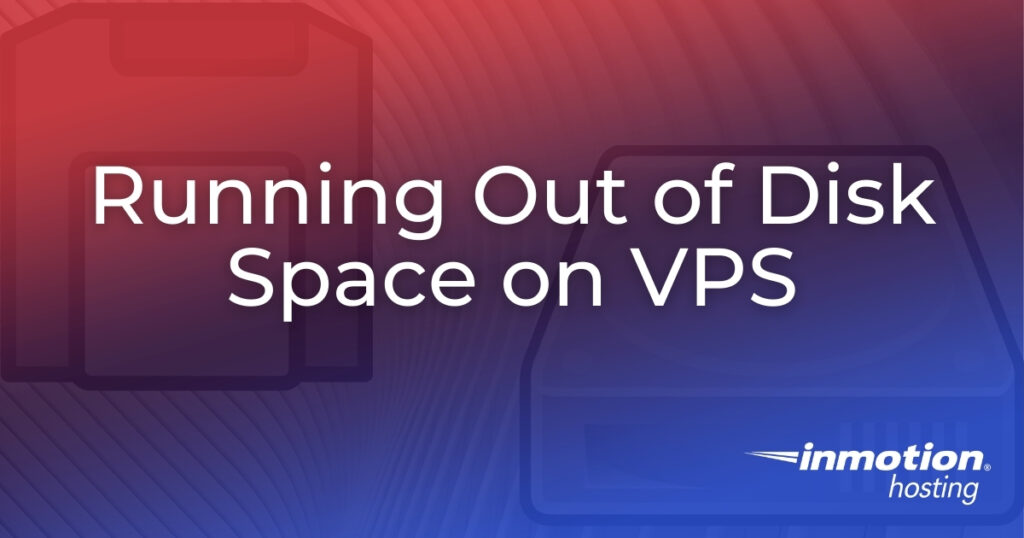Table of Contents

Running out of disk space on VPS Hosting can cause a variety of errors. Everything from MySQL server processes to basic website scripting can be affected. Worst of all, this can affect all of the sites on your server. The best way to avoid this problem is through advanced planning and being aware of common causes.
In this article, we cover the following:
Using Root to Check if Running Out of Disk Space on VPS
If you’re monitoring disk space on a VPS, you must check the used and available space from the ‘root’ account. Root access is important because it’s the only way to get accurate information. Most information you get within a cPanel account is limited. A regular cPanel user can only provide the information it has access to. You will get misleading information unless you check your server statistics with the root user.
A great example of this is available disk space. A VPS Hosting account requires a certain amount of disk space for server files. These include the server’s operating system (CentOS, Ubuntu, Debian), and other core software. However, that disk space is only listed as ‘used’ when you check from a root account. If you check from a normal account, even in WebHost Manager (WHM), you may not realize you’re already out of disk space!
Watching Out for Backup Turnover
There is one misunderstanding with WHM backups that leads to many disk space errors. When you schedule cPanel backups in WHM, you can save more than one backup. WHM first creates a new backup, then deletes the oldest ‘extra’ backup.
The problem is that moment between making a new backup and deleting an old one. In that time, an otherwise safe account can easily go over its usage limit. The errors caused by a lack of disk space prevent WHM from deleting old backups. When that happens, it can be very difficult to even get access to the server and clear out those old backups!

Prevent this problem before it happens– only save as many backups as you need. And download backups promptly to a local storage device – spare workstation, external drive, tape, etc. Remember that cPanel backups can be quite large. When you plan your backups, make sure you leave room for the ‘extra’ backup that briefly exists.
Being Aware of Junk Files
If you are hosting websites for your own clients, it’s a good idea to set some ground rules. Some people will never want to empty their email inboxes. After a few years, inboxes can balloon to 30 or 40 GB in size! Some clients upload lots of temporary files while working on their sites. If those files aren’t deleted, they are needlessly taking up space. A good way to manage this while you’re building a site is to regularly clear out files you don’t need.
Keep up with your clients and make sure they know what not to do. Prevent junk files from piling up you’ll be able to keep your server running with plenty of extra space!
Learn more about managing web servers from our Managed VPS Hosting Product Guide.
Upgrade to VPS Hosting for Peak Performance
Upgrade to InMotion VPS Hosting today for top-notch performance, security, and flexibility, and save up to $2,412 – a faster, stronger hosting solution is just a click away!
SSD Storage
High-Availability
Ironclad Security
Premium Support
